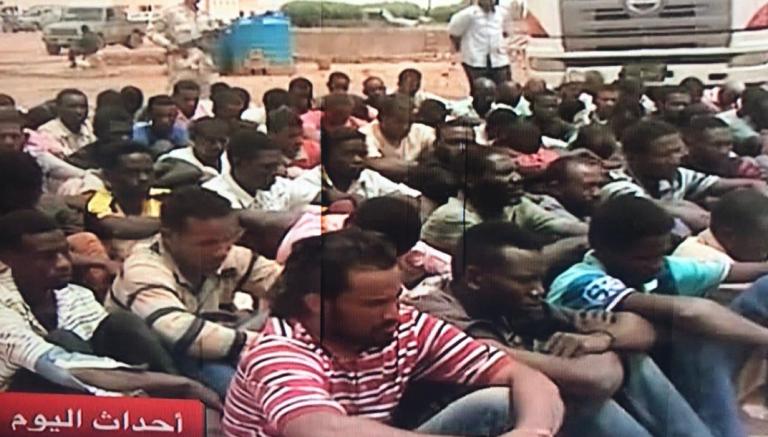Sudan calls to confiscate proceeds of crime in human trafficking cases

September 19, 2018 (KHARTOUM) – The Sudanese government Wednesday has called to forge an international agreement providing for the confiscation of proceeds of human trafficking and illegal migration crimes.
Speaking at the first regional conference of the prosecutor-general and general attorneys of Africa and Europe in Sharm El-Sheikh, Egypt, Sudan’s Attorney General Omer Mohamed Ahmed called to reconsider causes leading to illegal migration.
He stressed the need to launch development projects and create job opportunities for the youth besides combating poverty and protecting witnesses and informants of human trafficking and illegal migration crimes.
Ahmed also called to forge an international agreement to exchange information and handover perpetrators as well as protecting victims of human trafficking and illegal migration.
He pointed out that Sudan’s constitution and the law criminalizes slavery, human trafficking and illegal migration, saying his country is part of several agreements and initiatives aiming at countering these crimes.
Sudan is considered as a country of origin and transit for the illegal migration and human trafficking. Thousands of people from Eritrea and Ethiopia are monthly crossing the border into the Sudanese territories on their way to Europe through Libya or Egypt.
Last July, the Higher Committee to Combat Human Trafficking said it would develop a national anti-trafficking strategy as well as activating existing laws to counter the phenomenon in accordance with the established international standards.
In January 2014, the Sudanese parliament approved an anti-human trafficking law which punishes those involved with human trafficking with up to 20 years imprisonment.
Also, in 2014, Khartoum hosted a conference on human trafficking in the Horn of Africa, organised by the African Union (AU), the UN High Commissioner for Refugees (UNHCR), the International Organization for Migration (IOM) and the Sudanese government.
The East African nation has also forged a strategic partnership with several European countries and the EU to combat illegal migration and human trafficking.
(ST)
